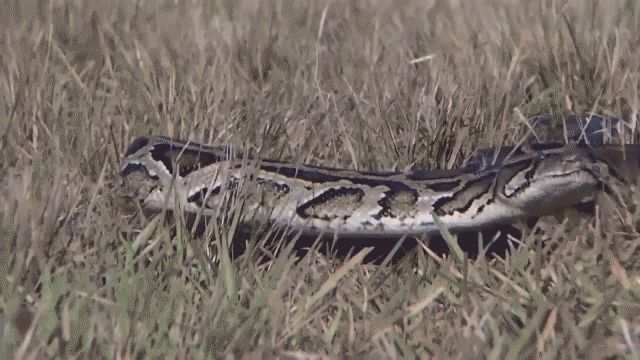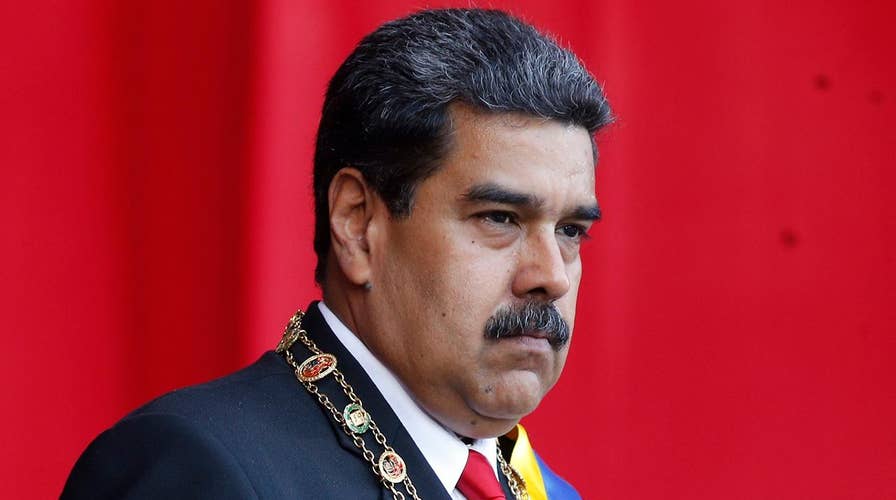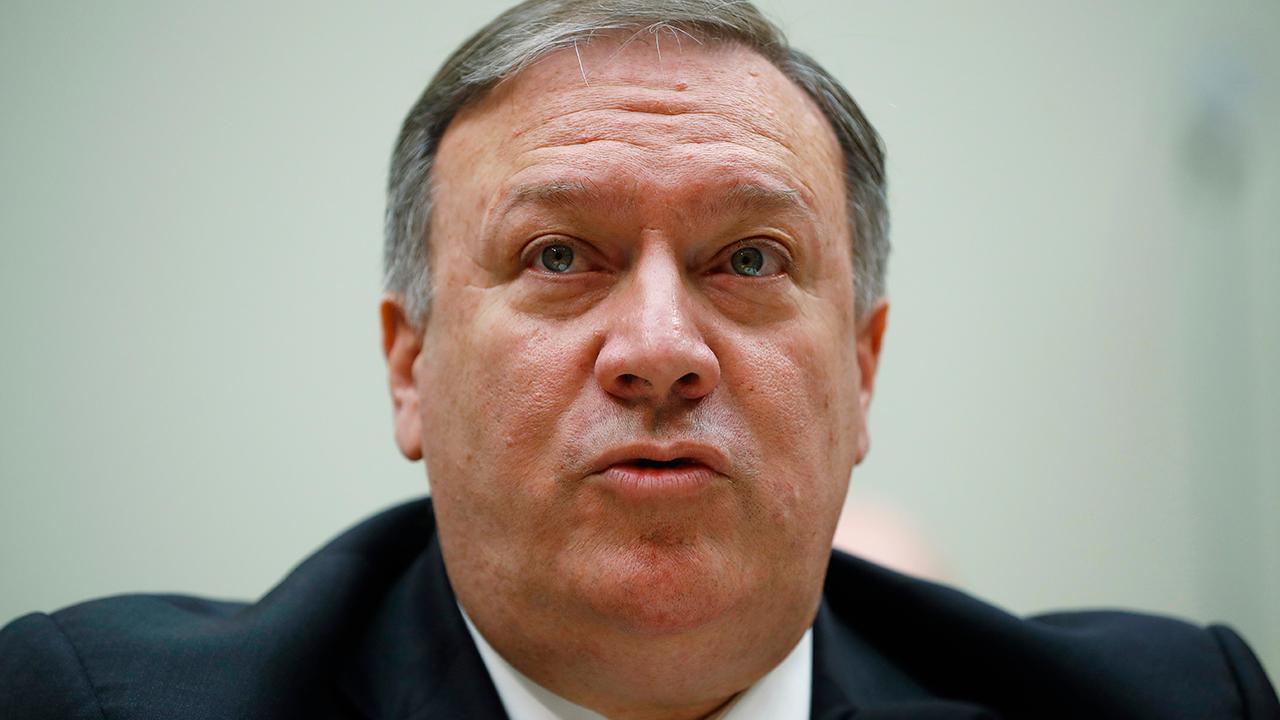'Assassination' attempt rattles Maduro's shaky grip on power
Armed drones interrupt speech by Venezuelan president; Steve Harrigan reports on the aftermath.
Whatever caused the explosions near Venezuelan President Nicolas Maduro at a rally on Saturday, many experts say the embattled leader will use the incident to continue his crackdown on political opponents.
Maduro and his allies called the attack direct proof that an international plot to overthrow his socialist administration exists. He also accused the Colombian government, his opponents inside Venezuela and Miami-based benefactors of colluding to set off explosives-laden drones.
Maduro did not provide evidence to back his claims. Over the weekend, Maduro administration said they had arrested six “terrorists and assassins” - and said there might be more arrests.
But the Broad Front, a coalition of opposition groups in Venezuela, accused the government of making an allegation without offering proof.
"It's evident that the initial reaction of the government isn't aimed at attempting to clarify what happened but rather to take advantage of the situation and irresponsibly and sweepingly attack the 'opposition,'" the group said in a statement.
Jason Marczak, director of the Atlantic Council’s Adrienne Arsht Latin America Center, told Fox News the explosions afforded Maduro the chance to divert attention from the numerous problems facing Venezuela. Among those issues is a dire nationwide food shortage and hyperinflation that the International Monetary Fund projects could top 1 million percent by year's end.
It's evident that the initial reaction of the government isn't aimed at attempting to clarify what happened but rather to take advantage of the situation and irresponsibly and sweepingly attack the 'opposition.'
“It’s the [former President Hugo] Chavez and Maduro playbook – to blame others for their problems, whether it’s food shortages, inflation, medicine shortages, diseases such as polio [reappearing], which was eradicated nearly 40 years ago,” Marczak said.
"Colombia is increasingly seen as a scapegoat for Maduro for the problems he faces in Venezuela, problems he created in his own country," Marczak said. "There has been a ramp-up in Colombia's attention to the crisis in Venezuela and trying to facilitate some type of international response...to put pressure on Venezuela."
Venezuelan Defense Minister Vladimir Padrino Lopez, appearing on state television Sunday, said the attackers were trying to wipe out Venezuela's entire top leadership.
Interior Minister Nestor Reverol said two drones, each packed with a about two pounds of C-4 plastic explosive, were flown toward Maduro, his wife and other top leaders as the president spoke to hundreds of troops during an event celebrating the 81st anniversary of the National Guard. One of the drones was intended to explode above Maduro and the other was to detonate directly in front of him, Reverol claimed.
The military managed to knock one of the drones off course electronically and the other craft crashed into an apartment building two blocks away, Reverol said.
But soon other theories emerged, including an account in the Miami Herald saying the firefighters who had responded to the scene said the explosions were not set off by drones, but by a gas tank that caught fire in an apartment near where Maduro was speaking.
Others believed the Maduro government itself was behind the explosions, in order to make itself seem the target of an assassination plot and giving it the fodder for lashing out opponents and rallying Venezuelans.
Two witnesses who live in nearby apartment buildings said they saw a drone hovering over a residential street Saturday evening and then heard an explosion.
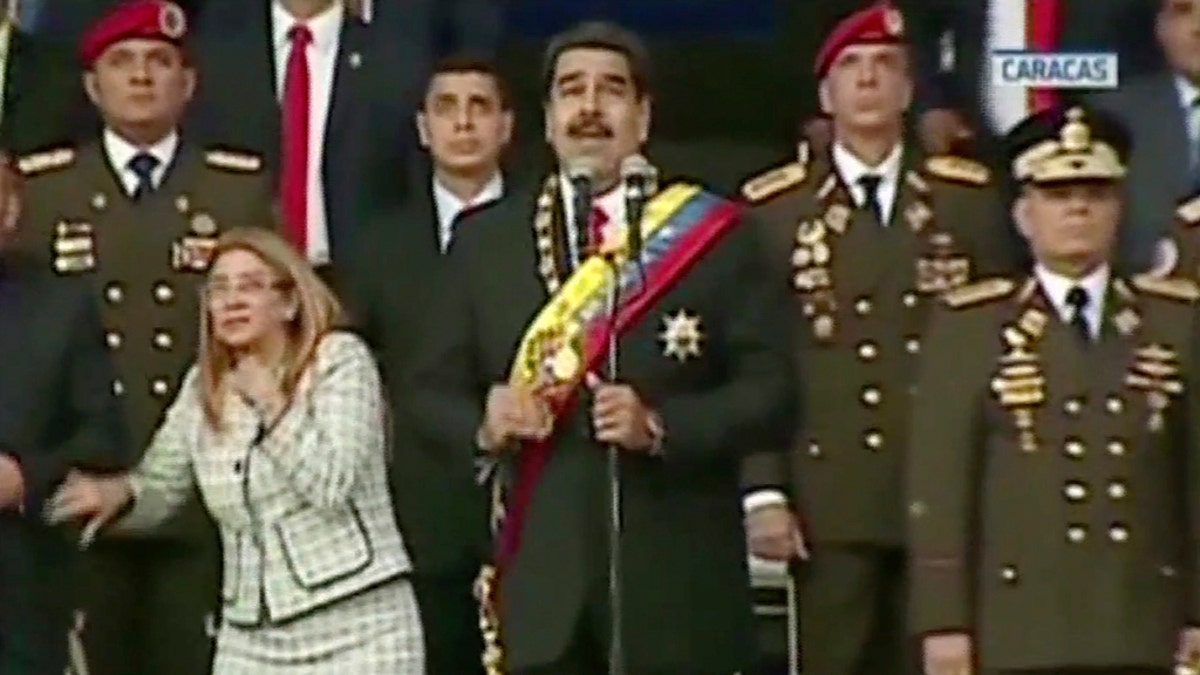
President Nicolas Maduro, center, delivers his speech as his wife Cilia Flores winces and looks up after hearing the explosion (AP)
One witness showed The Associated Press cellphone video of a drone crashing into a building. He said the drone fell to the ground and exploded, igniting a fire in an apartment. Another witness, Mairum Gonzalez, described running in panic to her fifth-floor balcony, where she heard the second explosion and saw smoke rising.
"It was so strong the building shook," she said. "It terrified me."
Some experts said the incident puts Maduro in an even worse light, both domestically and internationally.
“Before this event, Maduro was on thin ice, and now, after these damaging images, he appears even more vulnerable to crisis blowback," said Michael McCarthy, founder of Caracas Wire and research fellow at American University’s Centre for Latin America, in an interview with The Daily Telegraph, a British news outlet.
“The biggest change for the ruling coalition may be a heightened sense that Maduro's leadership may imperil government stability,” he said.
Another expert thought the incident and any vulnerability it might have exposed in the Maduro leadership may actually work in the socialist leader’s favor.
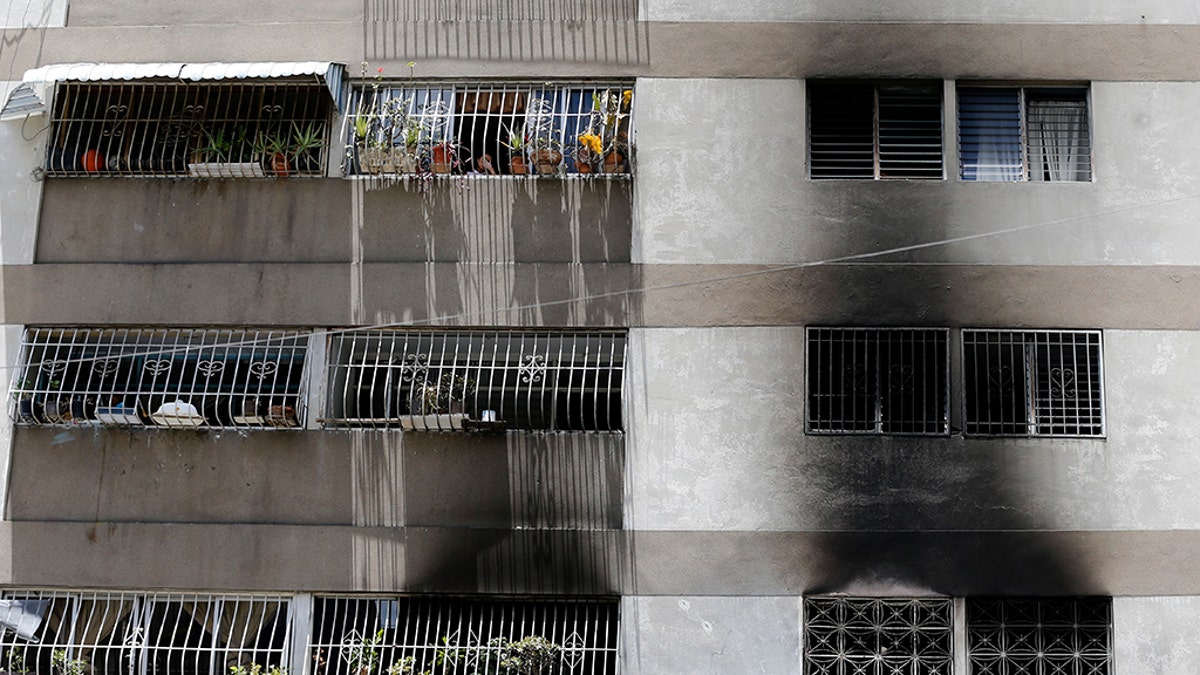
Signs of smoke cover an apartment complex where an allegedly armed drone crashed, causing a fire, in Venezuela on Sunday, Aug. 5, 2018. (AP)
“It’s true that the imagery from yesterday does not cast him in a good light,” said Geoff Ramsey, Venezuela researcher at the Washington Office on Latin America, to The Daily Telegraph, “but what matters is his control of the levers of power: the armed forces… where senior officers get perks in exchange for their loyalty, but also the political discourse of anti-imperialism and being able to say he is a president under siege.”
A little-known group calling itself Soldiers in T-shirts claimed responsibility for the attack, saying it planned to fly two drones loaded with explosives at the president but soldiers shot them down. The authenticity of the message could not be independently verified,.
"It was not successful today, but it is just a matter of time," the group said in a tweet.
Marczak, of the Atlantic Council, believes the true circumstances behind the explosions may never be known.
“I don’t take accounts by the Maduro regime as truth,” Marczak told Fox News. “I would hesitate to believe that the (six) people arrested were definitely behind it. It’s possible, but speaks to furthering clamping down and injecting new fear into those who publicly oppose the regime.”
The Associated Press contributed to this report.






